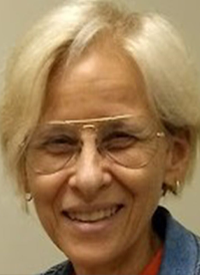Opinion: Novel Data Collection Method May Provide New Insight on Cancer Recurrence
An initiative in Florida will monitor cancer recurrence at a state-level, setting the bar for recurrence data collection and research.
Debi Fischer, MSW, BSN, BA, LCSW, RN

There is currently no population-level data system monitoring cancer recurrence standard in the United States. However, oncology nurses and social workers who work in Florida now have a new tool in their fight against cancer. The Cancer Connect Collaborative, announced by Florida First Lady, breast cancer survivor and advocate, Casey DeSantis, will make Florida the first state to collect recurrence data at a state-wide level. In my opinion, clinicians who live in other states, as well as clinicians abroad, can also leverage this tool when looking at data that show the types of cancers that have returned.
Goal of the Program
The goal of collecting cancer recurrence data is to reduce barriers to access this information and make research more timely.1 Previously, mortality and survival data were the central focus of cancer research. However, clinicians now understand that recurrence information is an integral part of informing new paths of care that can lead the patient to a remission.
As oncology nurses know, if a patient had cancer in the past, it can return or recur in a different place in the system, which is known as a cancer recurrence.1 The prospect of that happening can derail the best of a cancer survivor’s plans; their life as they know it will change, and their family and or loved one’s routine will be permanently upset. Their new normal may suddenly consist of an endless loop of doctor appointments and PET scans.
Data collected in this initiative can bring these patient experiences to light and improve research strategies.1
DeSantis explained that this data-driven program will seek to enhance cancer treatment and optimize standards of care. “By having [these] data reported to the state, this will be a resource to help identify new avenues resulting in better care and treatment standards to help all individuals battling the fight against cancer, regardless of where they are receiving care,” she said.1
Using Existing Systems in Florida
According to Florida’s State Surgeon General Joseph A. Ladapo, MD, PhD, the new vehicle will use the preexisting Florida Cancer Data System along with the Florida Department of Health and hospitals across the state to support the data collection. Jason Weida, theAgency for Health Care Administration Secretary, echoed this statement. He stated that Florida will be leading the way in cancer research through this new initiative and that it will be felt across the board— from Florida hospitals as well as academic centers, to teaching hospitals.1 To that end, the Agency for Health Care Administration and the Florida Department of Health have alerted all participating providers that report data to be on the lookout to receive this new information as part of their practice.
More Than a Numbers Crunch
As a backdrop to the Cancer Connect Collaborative, it is important to realize that Florida is home to more than 200,000 patients with cancer, who receive care at more than 300 cancer centers.2
There are 5 objectives identified in the Collaborative: data, best practices, innovation, funding, and honesty.2
This initiative is more than a numbers crunch. The premise of this program is to find out why it takes so long for data to be used in research. The program wants to remove this old school approach. The governor has proposed $170 million in funding to improve the pace of cancer research and novel technologies in the state. This will be key to funding the collaborative.
The Collaborative will look at how cancer can be prevented and its’ etiology. We are all about evidence-based practices in 2023. To that end, there will be transparency about what works in terms of treatment so all care is equal across the board.2 The Collaborative will “lift the curtain around cancer.”2 We know that on average there is a 10 to 12 year waiting period between finding a treatment and applying it in real time.2 Part of the initiative’s objectives is to identify the reasons these technologies get held up, and find innovate ways to fix those problems.
All these programs will only help in making the time and effort that oncology clinicians have more useful in their daily battle against cancer.
I always take the time to read patient histories and find out if there has been metastasis and or a recurrence when patients are admitted to the surgical oncology unit. Knowing a patient’s full story is important. Patients usually want to tell you their journey and having this information is vital in providing care.
References
- First Lady Casey DeSantis announces Florida becomes first state in the nation to collect cancer recurrence data. FloridaGov.com. March 23, 2023. Accessed March 28, 2023. https://www.flgov.com/2023/03/23/first-lady-casey-desantis-announces-florida-becomes-first-state-in-the-nation-to-collect-cancer-recurrence-data/
- Introducing the cancer connect collaborative. FloridaGov.com Accessed March 28, 2023. https://www.flgov.com/wp-content/uploads/2023/02/Cancer-Connect-One-Pager.pdf


